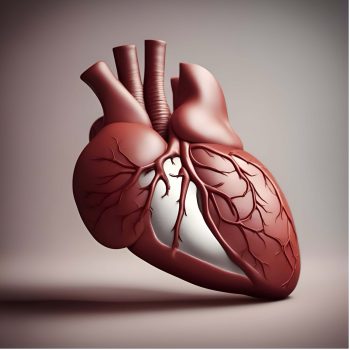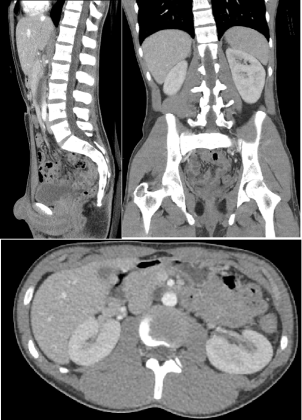Information
Medical Specialties
Anaesthesiology
is a medical specialty focused on the preoperative care of patients, including anaesthesia administration, pain management, and critical care. Anesthesiologists are medical doctors who specialize in anesthesiology. They are responsible for ensuring patient safety and comfort before, during, and after surgical procedures. Here’s a detailed overview of anesthesiology, including common diagnostic procedures and tips on how to stay healthy
An anaesthesiologist is a physician who:
- Administers Anesthesia: Provides anesthesia to patients undergoing surgery or other medical procedures.
- Monitors Vital Signs: Closely monitors patients’ vital signs (heart rate, blood pressure, breathing, etc.) during surgery.
- Manages Pain: Provides pain management for both acute (e.g., postoperative pain) and chronic pain conditions.
- Preoperative Evaluation: Assesses patients before surgery to determine the most appropriate anesthesia plan.
- Critical Care: Provides care for patients in intensive care units (ICUs) who require close monitoring and management of life-threatening conditions.

Diagnostic and Preoperative Procedures in Anaesthesiology
Preoperative Evaluation:
- Medical History: An anesthesiologist reviews the patient’s medical history, including previous anesthesia experiences, allergies, medications, and existing medical conditions.
- Physical Examination: A thorough physical examination is conducted to assess the patient’s overall health status and identify any potential risks.
- Laboratory Tests: Blood tests, urine tests, and other laboratory investigations may be ordered to evaluate the patient’s organ function and detect any abnormalities.
- Imaging Studies: Depending on the patient’s condition, imaging studies such as X-rays, CT scans, or MRIs may be reviewed to assess any anatomical or pathological issues.
Anesthesia Plan:
- Customized Plan: Based on the preoperative evaluation, the anesthesiologist develops a tailored anesthesia plan, including the type of anesthesia (general, regional, or local), dosages, and monitoring strategies.
- Patient Consultation: The anesthesiologist discusses the anesthesia plan with the patient, explaining the procedure, potential risks, and obtaining informed consent.
Intraoperative Monitoring:
- Continuous Monitoring: During surgery, anesthesiologists continuously monitor vital signs, including heart rate, blood pressure, oxygen saturation, respiratory rate, and end-tidal CO2 levels.
- Adjustments: They adjust anesthesia levels and medications as needed to maintain patient stability and comfort.
Postoperative Care:
- Recovery Monitoring: After surgery, patients are monitored in the post-anaesthesia care unit (PACU) until they regain consciousness and vital signs are stable.
- Pain Management: Anaesthesiologists provide postoperative pain relief through medications, nerve blocks, or other techniques.
Tips for Heart Health
Maintain a Healthy Weight: Keeping a healthy weight reduces the risk of complications during anaesthesia and surgery.
Quit Smoking: Smoking increases the risk of respiratory and cardiovascular complications. Quitting smoking improves overall health and reduces anesthesia-related risks.
Regular Exercise: Regular physical activity strengthens cardiovascular and respiratory systems, improving surgical outcomes and recovery.
Balanced Diet: A nutritious diet supports overall health, aids in recovery, and reduces the risk of chronic diseases.
Manage Chronic Conditions: Proper management of chronic conditions such as diabetes, hypertension, and heart disease is crucial for reducing surgical risks.
Regular Check-ups: Regular medical check-ups help in early detection and management of health issues, improving outcomes if surgery is needed.
Stay Informed: Understanding your medical conditions, medications, and potential anesthesia risks helps in making informed decisions and improving communication with healthcare providers.
Cardiology
is a specialised branch of medicine that deals with the diagnosis, treatment, and prevention of diseases and disorders of the heart and the circulatory system. It encompasses a wide range of conditions, including coronary artery disease, heart failure, arrhythmias, valvular heart diseases, congenital heart defects, and peripheral vascular diseases.
A cardiologist is a physician who specializes in diagnosing, treating, and preventing diseases and disorders of the heart and circulatory system. They are experts in managing conditions such as coronary artery disease, heart failure, arrhythmias, and hypertension.
They are experts in interpreting diagnostic tests such as electrocardiograms, echocardiograms, and cardiac catheterisations, as well as managing complex cardiovascular conditions.
- Coronary Artery Disease (CAD): Narrowing or blockage of the coronary arteries that supply blood to the heart muscle.
- Arrhythmias: Irregular heart rhythms, which can include tachycardia (fast heart rate), bradycardia (slow heart rate), and atrial fibrillation.
- Heart Failure: Inability of the heart to pump blood effectively to meet the body’s needs.
- Valvular Heart Dseases: Dysfunction of the heart valves, which can lead to leakage (regurgitation) or narrowing (stenosis) of the valves.
- Congenital Heart Defects: Structural abnormalities of the heart present at birth.

Diagnostic Procedures
Cardiologists utilize a range of diagnostic tests to evaluate heart health and identify any abnormalities or conditions. Such as echocardiograms, stress tests, and cardiac catheterizations to evaluate heart health and develop personalized treatment plans for patients.
- Electrocardiogram (ECG/EKG): This test records the electrical activity of the heart to detect irregularities in heart rhythm or signs of heart damage.
- Echocardiogram: An echocardiogram uses ultrasound technology to create images of the heart’s structure and function, allowing cardiologists to assess heart valves, chambers, and blood flow.
- Stress Test: A stress test measures the heart’s response to physical activity, typically through treadmill exercise or medication-induced stress, to evaluate heart function and detect signs of coronary artery disease.
- Cardiac Catheterisation: This invasive procedure involves inserting a catheter into the heart to visualise the coronary arteries, measure blood pressure, and assess for blockages or other abnormalities.
Tips for Heart Health
By incorporating these tips into your lifestyle and working closely with a cardiologist, you can take proactive steps to maintain heart health and reduce the risk of cardiovascular disease.
Eat a Heart-Healthy Diet: Focus on consuming a balanced diet rich in fruits, vegetables, whole grains, lean proteins, and healthy fats. Limit intake of saturated fats, trans fats, cholesterol, and sodium.
Exercise Regularly: Aim for at least 150 minutes of moderate-intensity aerobic exercise or 75 minutes of vigorous-intensity exercise per week, along with muscle-strengthening activities on two or more days per week.
Maintain a Healthy Weight: Maintain a body mass index (BMI) within the healthy range to reduce the risk of cardiovascular disease and related conditions.
Quit Smoking: Smoking is a major risk factor for heart disease and stroke. Seek support and resources to quit smoking and avoid exposure to secondhand smoke.
Manage Stress: Practice stress-reduction techniques such as deep breathing, meditation, yoga, or engaging in hobbies and activities you enjoy.
Monitor Blood Pressure and Cholesterol: Regularly monitor blood pressure and cholesterol levels, and follow medical advice to keep them within target ranges.
Get Regular Check-ups: Schedule regular visits with your healthcare provider for preventive care, screenings, and monitoring of cardiovascular risk factors.
Chemical Pathology
(also known as Clinical Biochemistry) is a medical specialty that focuses on the biochemical analysis of body fluids, such as blood, urine, and cerebrospinal fluid, to diagnose and manage diseases. Chemical pathologists use biochemical tests to detect changes in the concentrations of various substances, including enzymes, hormones, lipids, and electrolytes, which can indicate disease or organ dysfunction. Here’s a detailed overview of chemical pathology, common diagnostic procedures, and tips on how to stay healthy:
A chemical pathologist is a physician who specialises in:
- Biochemical Analysis: Interpreting laboratory results from biochemical tests to diagnose diseases and monitor treatment.
- Disease Management: Providing clinical advice on the diagnosis and management of metabolic disorders, endocrine disorders, and other diseases with biochemical abnormalities.
- Quality Control: Ensuring the accuracy and reliability of laboratory tests and maintaining quality control in the biochemical laboratory.
- Research and Development: Conducting research to develop new diagnostic tests and improve existing ones.

Diagnostic Procedures
Blood Tests:
- Complete Blood Count (CBC): Measures the levels of different blood cells (red cells, white cells, platelets) to detect anemia, infections, and hematological disorders.
- Electrolyte Panel: Measures levels of electrolytes (sodium, potassium, chloride, bicarbonate) to assess hydration status and kidney function.
- Liver Function Tests (LFTs): Measures enzymes and proteins produced by the liver to assess liver health and detect liver diseases.
- Kidney Function Tests: Includes tests like blood urea nitrogen (BUN) and creatinine to evaluate kidney function.
- Lipid Profile: Measures cholesterol and triglycerides levels to assess cardiovascular risk.
- Glucose Tests: Measures blood sugar levels to diagnose and monitor diabetes.
Urine Tests:
- Urinalysis: Examines the physical, chemical, and microscopic properties of urine to detect urinary tract infections, kidney diseases, and metabolic disorders.
- 24-hour Urine Collection: Measures substances excreted in urine over 24 hours to assess kidney function and detect disorders of metabolism.
Specialized Tests:
- Hormone Assays: Measures hormone levels (e.g., thyroid hormones, cortisol, insulin) to diagnose endocrine disorders.
- Tumor Markers: Measures specific proteins and substances produced by cancer cells to aid in cancer diagnosis and monitoring.
- Enzyme Activity Tests: Measures the activity of specific enzymes to diagnose metabolic and genetic disorders.
- Toxicology Screens: Detects and measures drugs, toxins, and poisons in the body.
Tips for Heart Health
Balanced Diet: Eat a diet rich in fruits, vegetables, whole grains, lean proteins, and healthy fats to provide essential nutrients and support metabolic health.
Regular Exercise: Engage in regular physical activity to maintain cardiovascular health, support metabolic function, and manage weight.
Adequate Hydration: Drink plenty of water to support kidney function and overall health.
Manage Stress: Practice stress-reducing techniques such as mindfulness, meditation, or yoga to maintain hormonal balance and mental health.
Regular Check-ups: Schedule regular health check-ups and laboratory tests to monitor health and detect potential issues early.
Avoid Smoking and Excessive Alcohol: Smoking and excessive alcohol consumption can negatively impact metabolic health and increase the risk of chronic diseases.
Maintain a Healthy Weight: Achieve and maintain a healthy weight to reduce the risk of diabetes, cardiovascular diseases, and other metabolic disorders.
Get Vaccinated: Stay up-to-date with vaccinations to prevent infections that can affect metabolic health.
Dentistry
is a medical specialty focused on the diagnosis, prevention, and treatment of oral and dental conditions. Dentists are healthcare professionals who specialize in maintaining and improving oral health, which includes the health of teeth, gums, and the related structures of the mouth. Here’s a detailed overview of dentistry, common diagnostic procedures, and tips on how to stay healthy:
A dentist is a healthcare professional who:
- Diagnoses Oral Conditions: Identifies problems related to teeth, gums, and other parts of the oral cavity.
- Treats Dental Issues: Provides treatments for various dental conditions, including fillings, crowns, root canals, and extractions.
- Performs Preventive Care: Offers preventive care services like cleanings, sealants, fluoride treatments, and patient education to maintain oral health.
- Enhances Aesthetic Appearance: Conducts cosmetic procedures such as teeth whitening, veneers, and orthodontics to improve the appearance of teeth.
- Manages Oral Health: Advises patients on proper oral hygiene practices and manages overall oral health care.

Diagnostic Procedures
Dental Examination:
- Visual Inspection: Dentists perform a thorough visual inspection of the teeth, gums, tongue, and other oral structures to identify any signs of decay, disease, or abnormalities.
- Palpation: Dentists may palpate (feel) the tissues in the mouth to detect any abnormalities or areas of concern.
Dental X-Rays:
- Bitewing X-Rays: These show the upper and lower back teeth and help detect decay between teeth and changes in bone density caused by gum disease.
- Periapical X-Rays: These provide a view of the entire tooth, from the crown to the root, and are used to detect issues below the gum line, such as abscesses or impacted teeth.
- Panoramic X-Rays: These provide a broad view of the jaws, teeth, sinuses, and nasal area, useful for detecting cysts, tumors, bone abnormalities, and impacted teeth.
Intraoral Cameras:
- Digital Imaging: Intraoral cameras provide high-resolution images of the inside of the mouth, helping dentists diagnose problems more accurately and educate patients about their oral health.
Periodontal Probing:
- Gum Measurements: Dentists use a periodontal probe to measure the depth of the pockets around the teeth to assess the health of the gums and diagnose periodontal (gum) disease.
Diagnostic Casts:
- Dental Impressions: Dentists take impressions of the teeth to create diagnostic casts (models) that help in planning treatments, such as orthodontics, dentures, or restorative work.
Tips for Heart Health
Brush Regularly: Brush your teeth at least twice a day with fluoride toothpaste to remove plaque and prevent cavities.
Floss Daily: Floss between your teeth daily to remove plaque and food particles from areas your toothbrush can’t reach.
Regular Dental Visits: Visit your dentist for regular check-ups and professional cleanings every six months or as recommended.
Healthy Diet: Eat a balanced diet rich in fruits, vegetables, whole grains, and lean proteins. Limit sugary snacks and drinks, which can contribute to tooth decay.
Hydrate: Drink plenty of water, especially after meals, to help wash away food particles and bacteria.
Avoid Tobacco: Avoid smoking and chewing tobacco, which can cause gum disease, tooth decay, and oral cancer.
Use Mouthguards: Wear a mouthguard during sports and recreational activities to protect your teeth from injury.
Limit Alcohol: Excessive alcohol consumption can lead to oral health problems, including gum disease and mouth cancer.
Replace Toothbrush Regularly: Replace your toothbrush every three to four months or sooner if the bristles are frayed.
Dietetics
is a field of study and practice focused on human nutrition and the regulation of diet. Dietitians are health professionals who specialize in dietetics and are trained to assess, diagnose, and treat dietary and nutritional problems. They work to promote health and manage diseases through the use of evidence-based nutrition practices. Here’s a detailed overview of dietetics, common diagnostic procedures, and tips on how to stay healthy:
A dietitian is a healthcare professional who:
- Assesses Nutritional Needs: Evaluates the nutritional status of individuals and groups based on their health conditions and dietary intake.
- Develops Meal Plans: Creates personalized diet plans to meet the nutritional needs of clients or patients.
- Provides Nutrition Counseling: Offers advice and guidance on healthy eating habits and lifestyle changes.
- Manages Dietary Conditions: Helps manage chronic diseases such as diabetes, cardiovascular diseases, and gastrointestinal disorders through dietary interventions.
- Promotes Public Health: Works in community settings to promote healthy eating habits and prevent nutrition-related diseases.

Diagnostic Procedures
Nutritional Assessment:
- Dietary History: Collects detailed information about a person’s eating habits, food preferences, meal patterns, and any dietary restrictions.
- Anthropometric Measurements: Measures body weight, height, body mass index (BMI), and body composition to assess nutritional status.
- Biochemical Tests: Reviews laboratory results, such as blood tests, to evaluate levels of vitamins, minerals, and other nutrients, as well as markers of health such as blood glucose and lipid profiles.
- Clinical Assessment: Evaluates physical signs of nutrient deficiencies or excesses, such as skin, hair, and nail conditions, and medical history.
- Dietary Analysis: Uses food frequency questionnaires, 24-hour dietary recalls, and food diaries to analyze nutrient intake.
Meal Planning and Counseling:
- Personalized Meal Plans: Develops individualized meal plans based on a person’s health needs, preferences, and lifestyle.
- Nutritional Counseling: Provides education and support to help clients make sustainable dietary changes and achieve their health goals.
Medical Nutrition Therapy (MNT):
- Disease Management: Uses nutrition interventions to manage chronic diseases such as diabetes, hypertension, kidney disease, and gastrointestinal disorders.
- Therapeutic Diets: Prescribes specific diets, such as low-sodium, gluten-free, or low-FODMAP diets, to manage medical conditions.
Nutritional Monitoring and Evaluation:
- Follow-Up Appointments: Regularly monitors patients’ progress, adjusts meal plans, and provides ongoing support and motivation.
- Outcome Measurement: Assesses the effectiveness of nutritional interventions through follow-up assessments and outcome measurements.
Tips for Heart Health
Eat a Balanced Diet: Consume a variety of foods from all food groups, including fruits, vegetables, whole grains, lean proteins, and healthy fats. This ensures you get a range of essential nutrients.
Portion Control: Be mindful of portion sizes to avoid overeating. Use smaller plates, read food labels, and listen to your body’s hunger and fullness cues.
Stay Hydrated: Drink plenty of water throughout the day. Limit sugary drinks and excessive caffeine and alcohol intake.
Limit Processed Foods: Reduce your intake of processed and high-sugar foods, which can contribute to weight gain and health problems.
Regular Physical Activity: Engage in regular exercise, such as walking, jogging, swimming, or cycling, to maintain a healthy weight and improve overall health.
Mindful Eating: Pay attention to what you eat and enjoy your meals. Avoid distractions like television or mobile devices during meals.
Healthy Cooking Methods: Choose cooking methods such as baking, grilling, steaming, or sautéing instead of frying to reduce unhealthy fat intake.
Read Food Labels: Learn to read and understand food labels to make healthier food choices, paying attention to ingredients, serving sizes, and nutritional content.
Manage Stress: Practice stress management techniques such as yoga, meditation, or deep breathing exercises to maintain a healthy relationship with food and prevent stress-related eating.
Get Regular Check-Ups: Visit your healthcare provider regularly for check-ups and screenings to monitor your health and catch potential issues early.
Haematology
is the branch of medicine that focuses on the study of blood, blood-forming organs, and blood diseases. Hematologists are medical specialists who diagnose, treat, and manage disorders related to blood and its components, including red blood cells, white blood cells, platelets, bone marrow, lymph nodes, and the coagulation system. Here’s a detailed overview of hematology, common diagnostic procedures, and tips on how to stay healthy:
A haematologist is a physician who:
- Diagnoses Blood Disorders: Identifies diseases and conditions related to blood, such as anemia, leukemia, lymphoma, clotting disorders, and hemophilia.
- Treats Blood Diseases: Provides medical treatment for blood disorders, which may include medications, chemotherapy, blood transfusions, and bone marrow transplants.
- Manages Chronic Conditions: Offers ongoing care and monitoring for patients with chronic blood disorders.
- Conducts Research: Participates in clinical research to develop new treatments and improve existing therapies for blood diseases.

Diagnostic Procedures
Complete Blood Count (CBC):
- Purpose: A CBC measures the levels of red blood cells, white blood cells, hemoglobin, hematocrit, and platelets. It helps diagnose anemia, infections, and many other hematological conditions.
- Procedure: Blood is drawn from a vein, typically in the arm, and analyzed in a laboratory.
Peripheral Blood Smear:
- Purpose: Examines the size, shape, and appearance of blood cells under a microscope. It is useful for diagnosing blood disorders such as leukemia, sickle cell anemia, and other abnormalities.
- Procedure: A drop of blood is spread on a microscope slide, stained, and examined by a pathologist.
Bone Marrow Aspiration and Biopsy:
- Purpose: Evaluates bone marrow function and helps diagnose conditions such as leukemia, lymphoma, multiple myeloma, and aplastic anemia.
- Procedure: A small amount of bone marrow is removed from the hip bone or sternum using a needle, typically under local anesthesia.
Coagulation Tests:
- Purpose: Assess the blood’s ability to clot. Common tests include prothrombin time (PT), activated partial thromboplastin time (aPTT), and international normalized ratio (INR).
- Procedure: Blood is drawn and tested in a laboratory to measure clotting time and function.
Flow Cytometry:
- Purpose: Analyzes the physical and chemical characteristics of cells or particles in a fluid as they pass through a laser. It is used to diagnose types of leukemia and lymphoma.
- Procedure: A blood, bone marrow, or tissue sample is treated with special dyes and passed through the flow cytometer.
Molecular and Genetic Testing:
- Purpose: Identifies genetic mutations and abnormalities associated with blood disorders. Tests may include polymerase chain reaction (PCR), next-generation sequencing (NGS), and fluorescence in situ hybridization (FISH).
- Procedure: Blood or bone marrow samples are collected and analyzed in a specialized laboratory.
Common Blood Disorders
- Anemia: A condition characterized by a deficiency of red blood cells or hemoglobin, leading to fatigue, weakness, and pallor.
- Leukemia: A type of cancer that affects the blood and bone marrow, characterized by the overproduction of abnormal white blood cells.
- Lymphoma: A cancer of the lymphatic system, which includes lymph nodes, spleen, and bone marrow.
- Hemophilia: A genetic disorder that impairs the blood’s ability to clot, leading to excessive bleeding.
- Thrombocytopenia: A condition characterized by a low platelet count, increasing the risk of bleeding and bruising.
- Sickle Cell Disease: A genetic disorder that causes red blood cells to become misshapen and break down.
Tips for Heart Health
Balanced Diet: Eat a diet rich in fruits, vegetables, lean proteins, and whole grains. Ensure adequate intake of iron, vitamin B12, and folate to support healthy blood production.
Regular Exercise: Engage in regular physical activity to maintain cardiovascular health and improve circulation.
Stay Hydrated: Drink plenty of water to help maintain blood volume and circulation.
Avoid Smoking and Limit Alcohol: Smoking and excessive alcohol consumption can negatively impact blood health and increase the risk of blood disorders.
Regular Check-ups: Visit your healthcare provider regularly for check-ups and blood tests to monitor your overall health and detect any potential issues early.
Manage Stress: Practice stress management techniques such as yoga, meditation, or deep breathing exercises to support overall health and well-being.
Prevent Infections: Follow good hygiene practices, stay up-to-date with vaccinations, and avoid exposure to infections, which can affect blood health.
Know Your Family History: Be aware of your family medical history, as some blood disorders can be inherited. Inform your healthcare provider about any family history of blood diseases.
Histopathology
is a branch of pathology that involves the study of tissue samples under a microscope to diagnose diseases and understand pathological changes. Histopathologists, or histologists, play a critical role in identifying the nature of diseases, particularly cancers, by examining tissue architecture, cellular morphology, and other microscopic features. Here’s a detailed overview of histopathology, common diagnostic procedures, and tips on how to stay healthy:
A histopathologist is a medical specialist who:
- Diagnoses Diseases: Examines tissue samples to diagnose diseases, including cancers, inflammatory conditions, and infectious diseases.
- Conducts Biopsies: Analyzes biopsied tissue samples to provide definitive diagnoses.
- Guides Treatment: Provides crucial information that guides the clinical management and treatment plans for patients.
- Performs Autopsies: Conducts post-mortem examinations to determine the cause of death and understand disease processes.

Diagnostic Procedures in Histopathology
Tissue Biopsy:
- Purpose: Collects tissue samples from a patient to diagnose various conditions, especially cancers.
- Procedure: A small piece of tissue is removed from the body, typically using a needle, endoscope, or surgical procedure.
Tissue Processing:
- Fixation: The tissue sample is preserved using a fixative (usually formalin) to prevent degradation.
- Embedding: The fixed tissue is embedded in a block of paraffin wax to provide support for thin sectioning.
Sectioning:
- Microtomy: Thin slices of the embedded tissue (usually 4-5 micrometers thick) are cut using a microtome and placed on glass slides.
Staining:
- Hematoxylin and Eosin (H&E): The most common stain used to differentiate cellular components. Hematoxylin stains cell nuclei blue, and eosin stains the cytoplasm and extracellular matrix pink.
- Special Stains: Additional stains (e.g., PAS, Masson’s trichrome) may be used to highlight specific tissue components, such as connective tissue, mucins, or pathogens.
Immunohistochemistry (IHC):
- Purpose: Uses antibodies to detect specific antigens (proteins) in the tissue, aiding in the diagnosis of certain diseases and cancers.
- Procedure: Tissue sections are treated with antibodies that bind to specific proteins, which are then visualized using chromogenic or fluorescent labels.
Molecular Pathology:
- In Situ Hybridization (ISH): Detects specific DNA or RNA sequences within the tissue, useful for identifying genetic abnormalities and infectious agents.
- Polymerase Chain Reaction (PCR): Amplifies and detects specific genetic material from the tissue sample to diagnose genetic disorders and infectious diseases.
Electron Microscopy:
- Purpose: Provides detailed images of cellular structures at a higher resolution than light microscopy, useful for diagnosing ultrastructural abnormalities.
- Procedure: Tissue samples are fixed, embedded in resin, and examined using an electron microscope.
Tips for Heart Health
Balanced Diet: Eat a variety of foods rich in vitamins, minerals, and antioxidants to support cellular health and overall well-being.
Regular Exercise: Engage in regular physical activity to maintain a healthy weight, improve circulation, and boost immune function.
Avoid Carcinogens: Limit exposure to known carcinogens, such as tobacco smoke, excessive alcohol, certain chemicals, and UV radiation, to reduce the risk of cancer.
Routine Screenings: Participate in recommended cancer screenings (e.g., mammograms, colonoscopies) and health check-ups for early detection of diseases.
Vaccinations: Stay up-to-date with vaccinations, including those for HPV and hepatitis B, which can reduce the risk of certain cancers.
Healthy Lifestyle Choices: Avoid risky behaviors, such as unsafe sex and intravenous drug use, which can increase the risk of infectious diseases and cancers.
Manage Stress: Practice stress-reducing techniques such as yoga, meditation, or mindfulness to support mental and physical health.
Stay Hydrated: Drink plenty of water to maintain cellular function and overall health.
Adequate Sleep: Ensure sufficient sleep to support immune function and overall health.
Sun Protection: Use sunscreen, wear protective clothing, and avoid excessive sun exposure to reduce the risk of skin cancer.
Gastroenterology
is a medical specialty focused on the study, diagnosis, and treatment of disorders of the digestive system, including the esophagus, stomach, small intestine, large intestine (colon), liver, gallbladder, and pancreas.
This field covers a wide range of conditions, including gastroesophageal reflux disease (GERD), peptic ulcers, inflammatory bowel disease (such as Crohn’s disease and ulcerative colitis), liver diseases (such as hepatitis and cirrhosis), pancreatitis, gallstones, and gastrointestinal cancers.
Gastroesophageal Reflux Disease (GERD): GERD is a chronic digestive disorder where stomach acid flows back into the esophagus, leading to irritation and inflammation of the esophageal lining. Common symptoms include heartburn, regurgitation, chest pain, difficulty swallowing, and chronic cough.
Peptic Ulcers: Are open sores that develop on the inner lining of the stomach, small intestine, or esophagus. They can be caused by infection with Helicobacter pylori bacteria, long-term use of NSAIDs (nonsteroidal anti-inflammatory drugs), smoking, alcohol consumption, or stress.
Inflammatory Bowel Disease: IBD is a group of chronic inflammatory conditions that affect the gastrointestinal tract. The two main types are Crohn’s disease and ulcerative colitis. Symptoms include abdominal pain, diarrhea, rectal bleeding, weight loss, and fatigue. IBD can cause complications such as strictures, fistulas, and nutritional deficiencies.
Liver Dsease: Liver diseases encompass a range of conditions affecting the liver, including hepatitis (inflammation of the liver), cirrhosis (scarring of the liver), fatty liver disease, and liver cancer.
Pancreatitis: Is inflammation of the pancreas, which can be acute or chronic. Acute pancreatitis is often caused by gallstones or excessive alcohol consumption, while chronic pancreatitis can result from repeated episodes of acute pancreatitis or long-term alcohol abuse. Symptoms include severe abdominal pain, nausea, vomiting, and fever.
Gallstones: Are hardened deposits that form in the gallbladder, often made of cholesterol or bilirubin. They can block the bile ducts, leading to symptoms such as abdominal pain (especially after eating fatty foods), nausea, vomiting, and jaundice.
Gastrointestinal Cancer: Gastrointestinal cancers can affect any part of the digestive tract, including the esophagus, stomach, intestines, liver, pancreas, and colon. They can present with various symptoms depending on the location and stage of the cancer, such as abdominal pain, changes in bowel habits, unintended weight loss, and blood in the stool.

Diagnostic Procedures
A Gastroenterologist is a medical doctor who specializes in the diagnosis, treatment, and prevention of diseases and disorders of the digestive system.
They are experts in performing diagnostic procedures such as endoscopies, colonoscopies, and imaging studies to evaluate the gastrointestinal tract.
- Endoscopy: Allows visualization to examine the esophagus, stomach, and duodenum (first part of the small intestine); and colon area. Biopsies can be taken during the procedure for further evaluation.
- Imaging Studies: Provides detailed cross-sectional images of the abdomen and pelvis, helping to evaluate the digestive organs and detect abnormalities such as tumors, abscesses, and inflammation.
- Endoscopic Retrograde Cholangiopancreatography (ERCP):Combines endoscopy and X-ray imaging to visualize the bile ducts and pancreatic ducts. It is used to diagnose and treat conditions such as gallstones, strictures, and pancreaticobiliary tumors. Therapeutic interventions, such as stent placement and stone removal, can be performed during ERCP.
- Manometry: Measures pressure and motor function within the gastrointestinal tract. Esophageal manometry evaluates esophageal function and is used to diagnose conditions such as achalasia and esophageal motility disorders. Anorectal manometry assesses anal sphincter function and is used in the evaluation of fecal incontinence and constipation.
- Capsule Endoscopy: nvolves swallowing a small, wireless camera capsule that travels through the digestive tract, capturing images of the small intestine. It is used to evaluate conditions such as obscure gastrointestinal bleeding, Crohn’s disease, and small bowel tumors.
Tips for staying Healthy
Eat a Healthy Diet: Consume a balanced diet rich in fiber, fruits, vegetables, lean proteins, and healthy fats to support digestive health.
Stay Hydrated: Drink plenty of water throughout the day to maintain proper hydration and aid digestion.
Maintain a Healthy Weight: Maintain a body mass index (BMI) within the healthy range to reduce the risk of cardiovascular disease and related conditions.
Stop Alcohol Intake: Excessive alcohol consumption can irritate the digestive tract and increase the risk of liver disease and other gastrointestinal problems.
Exercise Regularly: Engage in regular physical activity to support overall health, maintain a healthy weight, and promote regular bowel movements.
Manage Stress: Practice stress-reduction techniques like meditation, deep breathing exercises, yoga, or spending time in nature to minimize the impact of stress on digestive health.
Get Regular Check-ups: Schedule routine visits with a healthcare provider, including screenings like colonoscopies and liver function tests, to detect and address any gastrointestinal issues early on.
General Practitioner (GP)
serves as the primary point of contact for individuals seeking medical assistance and advice. GPs are trained to diagnose and treat a wide range of health issues, from minor ailments to chronic conditions.
Here’s a detailed overview of the role of a GP and common diagnostic procedures they may perform:
- Initial Consultation: When you see a GP, the first step is usually a consultation where you discuss your medical history, current symptoms, and any concerns you may have. The GP will ask questions to gather information about your health and lifestyle.
- Physical Examination: GPs often conduct physical examinations to assess your overall health. This may include checking your vital signs (such as blood pressure, heart rate, and temperature), examining specific areas of concern, and assessing your general appearance.
- Referrals: If further evaluation or specialized care is needed, the GP may refer you to a specialist or another healthcare provider for additional tests or treatment.
- Treatment Planning: Based on the findings from the consultation and diagnostic tests, the GP will develop a treatment plan tailored to your specific needs. This may include medication prescriptions, lifestyle recommendations, referrals to other healthcare professionals, or advice on self-care.

Diagnostic test
Depending on your symptoms and medical history, your GP may recommend various diagnostic tests to help identify the underlying cause of your health issues.
Common tests include:
- Blood Tests: To check for infections, diseases, or abnormalities in blood cell counts.
- Urinalysis: To assess kidney function, detect urinary tract infections, or screen for other health conditions.
- Imaging Tests: (X-rays, ultrasound, MRI, CT scans): to visualize internal structures and diagnose conditions such as fractures, tumors, or organ abnormalities.
- Electrocardiogram (ECG or EKG): to evaluate heart function and detect abnormalities in heart rhythm.
Tips for staying Healthy
Eat a Healthy Diet: Maintain a balanced diet rich in fruits, vegetables, whole grains, lean proteins, and healthy fats. Limit intake of processed foods, sugary drinks, and excessive amounts of salt and saturated fats.
Stay Hydrated: Drink plenty of water throughout the day to stay hydrated and support bodily functions.
Maintain a Healthy Weight: Maintain a body mass index (BMI) within the healthy range to reduce the risk of cardiovascular disease and related conditions.
Avoid Harmful Intake: Avoid alcohol consumption, smoking, and refrain from using illicit drugs to protect your health.
Exercise Regularly: Aim for at least 30 minutes of moderate-intensity exercise most days of the week. This can include activities like brisk walking, swimming, or cycling.
Manage Stress: Practice stress-reducing techniques such as mindfulness meditation, deep breathing exercises, or yoga to manage stress levels effectively.
Adequate Sleep: Aim for 7-9 hours of quality sleep per night to support overall health and well-being.
Get Regular Check-ups: Schedule regular check-ups with your GP for preventive care and early detection of any health issues.
Obstetrics and Gynecology (OB/GYN)
is a medical specialty that focuses on the health of the female reproductive system, including the uterus, ovaries, fallopian tubes, cervix, and vagina. OB/GYNs are medical doctors who specialize in both obstetrics (pregnancy and childbirth) and gynecology (women’s reproductive health).
They are experts in interpreting diagnostic tests such as electrocardiograms, echocardiograms, and cardiac catheterizations, as well as managing complex cardiovascular conditions.
- Visit the Doctor every 2 years minimum, for regular Pap Smear (Pap Test) checkups.

Diagnostic Procedures
Here’s a detailed overview of OB/GYN and common diagnostic procedures performed by OB/GYNs:
- Prenatal Care: OB/GYNs provide comprehensive prenatal care to monitor the health and development of both the mother and the fetus during pregnancy.
- Ultrasound: Ultrasound imaging is used to assess fetal growth and development, detect abnormalities, determine the baby’s sex, and monitor the placenta and amniotic fluid levels.
- Biophysical Profile (BPP): Combines ultrasound with NST to evaluate fetal well-being by assessing fetal movements, breathing, muscle tone, amniotic fluid volume, and heart rate patterns.
- Pap Smear (Pap Test): This screening test collects cells from the cervix to detect abnormal changes that may indicate cervical cancer or precancerous conditions.
- Hysteroscopy: Involves inserting a thin, flexible tube with a camera (hysteroscope) through the cervix into the uterus to diagnose and treat conditions such as uterine fibroids, polyps, or abnormal bleeding.
- etc
Tips for staying Healthy
Remember, maintaining open communication with your OB/GYN and seeking regular medical care are essential for staying healthy and addressing any concerns related to your reproductive health and well-being.
Regular Health Screenings:Schedule regular visits with your OB/GYN for routine check-ups, screenings, and preventive care, including Pap smears, pelvic exams, breast exams, and mammograms as recommended based on your age and risk factors.
Healthy Lifestyle: Maintain a healthy diet, exercise regularly, manage stress, and avoid smoking and excessive alcohol consumption to support overall health and reduce the risk of chronic diseases, including gynecological and obstetric conditions.
Safe Sex Practices: Practice safe sex by using condoms and other barrier methods to reduce the risk of sexually transmitted infections (STIs) and unintended pregnancies.
Birth Control: Discuss contraceptive options with your OB/GYN to choose a method that meets your needs and preferences for preventing pregnancy.
Breast Health: Perform regular breast self-exams and report any changes or abnormalities to your OB/GYN. Additionally, discuss mammography screening recommendations with your doctor based on your age and risk factors for breast cancer.
Menstrual Health: Track your menstrual cycle and report any changes in menstrual patterns, such as irregular periods, heavy bleeding, or pelvic pain, to your OB/GYN for evaluation and management.
Emotional Well-being: Take care of your mental and emotional health by seeking support, practicing self-care, and reaching out to your OB/GYN or a mental health professional if you’re experiencing anxiety, depression, or other emotional concerns.
Neurology
is a medical specialty focused on the diagnosis and treatment of disorders affecting the nervous system, which includes the brain, spinal cord, nerves, and muscles.
Neurologists are physicians who specialize in this field and are trained to identify and manage a wide range of neurological conditions.
They perform a comprehensive neurological examination to assess various aspects of nervous system function, including…
- Cognitive Function: Memory, attention, language, and executive function.
- Cranial Nerves:Assessment of vision, hearing, facial movement, and sensation.
- Motor Function: Strength, coordination, and reflexes.
- Sensory Function: Evaluation of touch, pain, temperature, and proprioception.
- Balance and Coordination: Assessment of gait, balance, and fine motor skills.

Diagnostic test
Neurologists may also perform specialized tests depending on the suspected condition, such as neuropsychological testing, genetic testing, or evoked potentials.
Depending on the symptoms and suspected condition, neurologists may order various diagnostic tests to aid in diagnosis, such as:
- Imaging Studies: Magnetic Resonance Imaging (MRI) and Computed Tomography (CT) scans to visualize the brain, spinal cord, and other structures.
- Electroencephalogram (EEG): Records electrical activity in the brain and helps diagnose conditions such as epilepsy and sleep disorders.
- Nerve Conduction Studies and Electromyography (EMG): Evaluate nerve and muscle function and diagnose conditions such as peripheral neuropathy and muscle disorders.
- Lumbar Puncture (spinal tap): Collects cerebrospinal fluid (CSF) to assess for infections, inflammation, or other abnormalities.
Tips for staying Healthy
Eat a Healthy Diet: Consume a balanced diet rich in fruits, vegetables, whole grains, lean proteins, and healthy fats to support brain health and overall well-being.
Stay Hydrated: Drink plenty of water throughout the day to stay hydrated and support bodily functions.
Protect Your Brain: Wear helmets during activities such as biking, skating, or skiing to prevent head injuries.
Avoid Harmful Intake: Avoid alcohol consumption, smoking, and refrain from using illicit drugs to protect your health.
Exercise Regularly: Engage in regular physical activity to maintain overall health and reduce the risk of neurological conditions such as stroke and dementia.
Manage Stress: Practice stress-reducing techniques such as mindfulness meditation, deep breathing exercises, or yoga to manage stress levels effectively.
Adequate Sleep: Aim for 7-9 hours of quality sleep per night to support overall health and well-being.
Stay Socially Engaged:Maintain social connections and engage in activities that stimulate your mind to support cognitive function and emotional well-being.
Protect Your Nerves:Avoid prolonged pressure or repetitive movements that can cause nerve damage or exacerbate existing neurological conditions.
Oncology
is a medical specialty focused on the diagnosis, treatment, and management of cancer.
Oncologists are medical doctors who specialize in oncology and are trained to diagnose and treat various types of cancer, coordinate multidisciplinary care, and provide supportive care to cancer patients and their families.
- If you feel any unfamiliar mass on your body, you must have it looked at as soon as possible!

Diagnostic test
Here’s a detailed overview of oncology, including common diagnostic procedures and tips on staying healthy:
- Biopsy: A biopsy involves removing a small sample of tissue from a suspicious area and examining it under a microscope to determine if cancer cells are present. Different types of biopsies include needle biopsies, surgical biopsies, and endoscopic biopsies.
- Imaging Studies: Imaging tests such as X-rays, computed tomography (CT) scans, magnetic resonance imaging (MRI), positron emission tomography (PET) scans, and ultrasound are used to visualize internal organs and structures, detect tumors, and determine the extent of cancer spread (staging).
- Blood Tests: Blood tests may be performed to measure tumor markers, assess organ function, and detect abnormalities in blood cell counts, liver enzymes, or other indicators of cancer.
- Endoscopy: Endoscopic procedures involve inserting a thin, flexible tube with a camera (endoscope) into the body to visualize internal organs and tissues, such as the digestive tract (esophagus, stomach, colon), respiratory tract (bronchi, lungs), or urinary tract (bladder, kidneys), and obtain biopsy samples if necessary.
Tips for staying Healthy
By adopting healthy lifestyle habits and seeking regular medical care, you can help prevent disease, maintain overall health, and reduce the risk of cancer and other health problems. If you have specific health concerns or risk factors, consult with your healthcare provider for personalized guidance and recommendations.
Healthy Diet: Follow a balanced diet rich in fruits, vegetables, whole grains, lean proteins, and healthy fats to provide essential nutrients, support immune function, and reduce the risk of cancer and other chronic diseases.
Regular Exercise: Engage in regular physical activity, such as walking, jogging, swimming, or cycling, to promote cardiovascular health, maintain a healthy weight, and reduce the risk of cancer and other health problems.
Tobacco Avoidance: Avoid smoking, vaping, and other forms of tobacco use, as well as exposure to secondhand smoke, to reduce the risk of cancer, heart disease, and other health conditions.
Limit Alcohol: Limit alcohol consumption to moderate levels (if consumed at all), as excessive alcohol intake is associated with an increased risk of cancer, liver disease, and other health problems.
Sun Protection: Protect your skin from harmful UV radiation by wearing sunscreen, protective clothing, and sunglasses, seeking shade, and avoiding excessive sun exposure to reduce the risk of skin cancer and premature aging.
Regular Health Screenings: Schedule regular health screenings and check-ups with your healthcare provider for early detection and prevention of cancer and other health conditions.
Manage Stress: Practice stress management techniques such as mindfulness meditation, deep breathing exercises, yoga, or hobbies and activities that promote relaxation and well-being.
Stay Stay Hygienic: Practice good hygiene habits, such as handwashing, dental care, and food safety measures, to prevent the spread of infectious diseases and maintain optimal health.
Ophthalmology
is a branch of medicine specializing in the diagnosis and treatment of disorders related to the eyes and visual system.
Ophthalmologists are medical doctors who have completed specialized training in ophthalmology and are qualified to provide comprehensive eye care, including medical and surgical interventions.
Based on the findings from the examination and diagnostic tests, ophthalmologists develop individualized treatment plans tailored to the patient’s specific condition and needs. Treatment may include:
- Prescription Eyeglasses or Contact Lense
- Medications (e.g., eye drops, ointments) for conditions such as glaucoma, infections, or inflammation.
- Laser Therapy (e.g., laser photocoagulation, LASIK) for refractive errors, glaucoma, or retinal disorders.
- Surgical Interventions (e.g., cataract surgery, retinal surgery) for conditions requiring surgical correction or treatment.

Diagnostic Procedures
In addition to the comprehensive eye examination, ophthalmologists may perform specialized tests and imaging studies to diagnose and monitor various eye conditions, such as:
- Optical Coherence Tomography (OCT): Provides high-resolution cross-sectional images of the retina, optic nerve, and macula, aiding in the diagnosis and management of conditions such as macular degeneration and glaucoma.
- Visual Field Testing: Assesses your peripheral vision to detect abnormalities that may indicate conditions such as glaucoma, retinal disorders, or neurological diseases.
- Corneal Topography: Maps the curvature of the cornea to diagnose conditions such as keratoconus, corneal irregularities, or astigmatism.
- Fluorescein Angiography: Involves the injection of a fluorescent dye into your bloodstream to evaluate blood flow in the retina and detect abnormalities such as diabetic retinopathy or macular degeneration.
Tips for Healthy Eyes
Remember, these tips are general guidelines, and it’s essential to consult with an eye care professional for personalized advice based on your individual eye health needs and risk factors.
Eat a Healthy Diet: Maintain a balanced diet rich in fruits, vegetables, omega-3 fatty acids, and antioxidants to support eye health and reduce the risk of age-related macular degeneration and other eye diseases.
Regular Eye Examinations: Schedule comprehensive eye examinations with an ophthalmologist or optometrist at least once every one to two years, or as recommended based on your age, risk factors, and overall eye health.
Protective Eyewear: Wear appropriate eye protection, such as safety glasses or goggles, when engaging in activities that pose a risk of eye injury or exposure to hazardous materials or projectiles.
UV Protection: Wear sunglasses that block ultraviolet (UV) radiation to protect your eyes from harmful UV rays, which can contribute to the development of cataracts, macular degeneration, and other eye conditions.
Quit Smoking: If you smoke, quit smoking to reduce the risk of developing eye conditions such as cataracts, macular degeneration, and optic nerve damage.
Protective Eyewear: Practice stress-reduction techniques such as deep breathing, meditation, yoga, or engaging in hobbies and activities you enjoy.
Limit Screen Time: Take regular breaks and practice the 20-20-20 rule (every 20 minutes, look at something 20 feet away for at least 20 seconds) to reduce eye strain and fatigue associated with prolonged screen use.
Manage Chronic Health Conditions: Manage chronic health conditions such as diabetes, hypertension, and cardiovascular disease to reduce the risk of eye complications such as diabetic retinopathy, hypertensive retinopathy, and vascular occlusions.
Orthopaedics
is a medical specialty focused on the diagnosis, treatment, and management of musculoskeletal conditions, which include bones, joints, ligaments, tendons, muscles, and nerves.
Orthopedists, also known as orthopedic surgeons, are medical doctors who specialize in this field and are trained to address a wide range of orthopedic issues, from sports injuries to degenerative diseases.
Once a diagnosis is established, orthopedists develop individualized treatment plans tailored to the patient’s specific condition and needs.
Treatment may include:
- Physical Therapy
- Bracing, or Injections
- Arthroscopic Surgery
- Joint Replacement Surgery

Diagnostic Procedures
Here’s a detailed overview of orthopedics and common diagnostic procedures performed by orthopedists:
- Diagnostic Imaging: Orthopedists may use various imaging techniques to aid in diagnosis and treatment planning.
- Laboratory Tests: In some cases, orthopedists may order blood tests or other laboratory studies to help diagnose systemic conditions that may affect the musculoskeletal system, such as autoimmune diseases or metabolic disorders.
- Arthroscopy: This minimally invasive surgical procedure involves inserting a small camera (arthroscope) into the joint to visualize and diagnose internal joint problems, such as torn cartilage (meniscus tears), ligament injuries, or synovial inflammation.
- Electromyography (EMG) and Nerve Conduction Studies: These tests evaluate nerve function and muscle activity, aiding in the diagnosis of conditions such as nerve compression (e.g., carpal tunnel syndrome) or peripheral neuropathy.
- Bone Density Testing (DEXA Scan):Measures bone mineral density to assess for osteoporosis or osteopenia, conditions characterized by weakened bones and increased fracture risk.
Tips for staying Healthy
Remember to consult with an orthopedist or your primary care physician for personalized advice based on your individual musculoskeletal health needs and risk factors.
Proper Ergonomics: Maintain good posture and use ergonomic equipment and techniques to prevent repetitive strain injuries and reduce the risk of musculoskeletal pain and discomfort, especially in the workplace.
Avoid Overuse Injuries: Gradually increase the intensity and duration of physical activities to avoid overuse injuries such as tendonitis, stress fractures, or muscle strains.
Healthy Nutrition: Follow a balanced diet rich in nutrients such as calcium, vitamin D, protein, and antioxidants to support bone health and muscle function.
Exercise Regularly: Engage in regular physical activity, including aerobic exercise, strength training, and flexibility exercises, to improve muscle strength, joint flexibility, and overall musculoskeletal health.
Maintain a Healthy Weight: Maintain a healthy weight to reduce stress on your joints and lower the risk of developing osteoarthritis and other weight-related orthopedic conditions.
Avoid Smoking and Excessive Alcohol: Quit smoking and limit alcohol consumption to reduce the risk of osteoporosis, impaired bone healing, and other musculoskeletal problems associated with tobacco and alcohol use.
Stay Hydrated: Drink plenty of water to keep your muscles, joints, and connective tissues hydrated and functioning properly.
Otolaryngology
commonly referred to as ENT (Ear, Nose, and Throat) medicine, is a medical specialty that focuses on the diagnosis and treatment of disorders related to the ear, nose, throat, and related structures of the head and neck.
Otolaryngologists, also known as ENT doctors, are medical doctors who specialize in this field and are trained to address a wide range of conditions, from common ear infections to complex head and neck cancers.
- Ear Examination: Examination of the outer ear, ear canal, and eardrum using an otoscope to assess for ear infections, wax buildup, or other abnormalities.
- Nasal Examination: Inspection of the nasal passages and sinuses to assess for nasal congestion, nasal polyps, deviated septum, or signs of sinusitis.
- Throat Examination: Evaluation of the throat, tonsils, and back of the mouth using a lighted instrument to assess for sore throat, tonsillitis, voice changes, or other throat conditions.
- Neck Examination: Palpation of the neck to check for swollen lymph nodes, masses, or other abnormalities.
- Balance Testing: Evaluation of balance and vestibular function using tests such as electronystagmography (ENG) or videonystagmography (VNG) to diagnose inner ear disorders such as vertigo or Meniere’s disease.
- Allergy Testing: Assessment of allergies using skin prick tests or blood tests to identify allergens that may contribute to sinusitis, nasal congestion, or allergic rhinitis.

Diagnostic Procedures
Here’s a detailed overview of otolaryngology and common diagnostic procedures performed by otolaryngologists:
- Audiometry: Hearing tests, including pure tone audiometry and speech audiometry, to assess hearing loss and determine its type and severity.
- Tympanometry: Measures the movement of the eardrum in response to changes in air pressure, aiding in the diagnosis of middle ear disorders such as otitis media or eustachian tube dysfunction.
- Nasal Endoscopy: Involves passing a thin, flexible tube with a camera (endoscope) through the nose to visualize the nasal passages, sinuses, and nasopharynx, aiding in the diagnosis of sinusitis, nasal polyps, or nasal obstruction.
- Laryngoscopy: Examination of the larynx (voice box) using a flexible or rigid endoscope to assess for vocal cord disorders, hoarseness, or throat cancer.
- Biopsy: Removal of a small tissue sample for microscopic examination to diagnose conditions such as tumors, infections, or inflammatory diseases of the head and neck.
Tips for staying Healthy
Remember, maintaining open communication with your otolaryngologist and seeking prompt medical attention for any concerns related to your ear, nose, and throat health are essential for staying healthy and addressing any issues that may arise.
Ear Care: Protect your ears from loud noises, avoid inserting objects into the ear canal, and seek prompt treatment for ear infections or hearing loss.
Nasal Hygiene: Practice good nasal hygiene by using saline nasal sprays or nasal irrigation to keep the nasal passages moist and clear of mucus and allergens.
Throat Health: Maintain throat health by staying hydrated, avoiding irritants such as smoking and excessive alcohol consumption, and seeking treatment for throat infections or voice changes.
Allergy Management: Manage allergies by avoiding triggers, using allergy medications as prescribed, and considering allergy immunotherapy (allergy shots) if indicated.
Sinus Health: Promote sinus health by staying hydrated, using humidifiers, avoiding environmental allergens, and seeking treatment for sinus infections or chronic sinusitis.
Vocal Health: Protect your voice by avoiding yelling or straining, staying hydrated, and seeking treatment for voice changes or hoarseness.
Get Regular Check-ups: Schedule regular check-ups with an otolaryngologist for preventive care, early detection of ear, nose, and throat conditions, and management of chronic conditions such as allergies or sinusitis.
Paediatricians
are medical doctors who have completed specialised training in paediatrics and are dedicated to promoting the health and well-being of young patients.
A paediatrician plays a crucial role in providing comprehensive medical care and guidance for children and adolescents, addressing their physical, emotional, and developmental needs from infancy through adolescence. Regular visits to a paediatrician, along with proactive measures to promote a healthy lifestyle, are essential for ensuring your child’s optimal health and well-being.
When you visit a paediatrician, they will conduct a comprehensive evaluation of your child’s health and development, which may include:
- Medical History: Gathering information about your child’s past medical history, family history, growth and development, immunization status, and any current symptoms or concerns.
- Physical Examination: Performing a thorough physical examination to assess your child’s overall health, growth, vital signs (such as heart rate, blood pressure, and temperature), and physical development.
- Developmental Screening: Assessing your child’s developmental milestones, including motor skills, language development, social interactions, and cognitive abilities, to monitor for any delays or developmental disorders.
- Nutritional Assessments: Evaluating your child’s dietary habits, growth patterns, and nutritional status to ensure they are meeting their nutritional needs for growth and development.
- Developmental and Behavioural Assessments: Paediatricians may use standardized screening tools or questionnaires to assess your child’s behaviour, emotions, and social interactions, as well as screen for developmental disorders such as autism spectrum disorder (ASD) or attention-deficit/hyperactivity disorder (ADHD).
- Immunisations: Administering routine vaccinations and providing guidance on the recommended immunisation schedule to protect your child against vaccine-preventable diseases.

Diagnostic Procedures
Here’s a detailed overview of pediatrics and common diagnostic procedures performed by pediatricians:
- Blood Tests: Ordering laboratory tests such as complete blood count (CBC), blood chemistry panel, or blood cultures to assess for infections, anemia, or other blood disorders.
- Urinalysis: Analyzing a urine sample to screen for urinary tract infections, kidney disorders, or metabolic abnormalities.
- Imaging Studies: Ordering imaging tests such as X-rays, ultrasound, or CT scans to evaluate specific symptoms or conditions, such as bone fractures, pneumonia, or abdominal pain.
- Allergy Testing: Performing skin prick tests or blood tests to identify allergens that may be triggering allergic reactions or respiratory symptoms in children with allergies or asthma.
- Vision and Hearing Screening:Conducting vision and hearing tests to screen for vision or hearing impairment that may affect your child’s development or academic performance.
Tips for keeping your Child Health
Routine Well-child Visits: Schedule regular well-child visits with a pediatrician for preventive care, growth monitoring, and developmental screenings according to the recommended schedule.
Healthy Diet and Nutrition: Provide a balanced diet rich in fruits, vegetables, whole grains, lean proteins, and dairy products to support your child’s growth and development. Limit sugary snacks and drinks and encourage drinking plenty of water.
Physical Activity: Encourage regular physical activity and outdoor play to promote healthy growth, motor development, and cardiovascular fitness in children.
Adequate Sleep: Ensure your child gets enough sleep each night according to their age and developmental stage to support overall health, immune function, and cognitive performance.
Safety Measures: Take precautions to ensure your child’s safety at home, in the car, and during recreational activities by using safety gates, car seats, helmets, and other protective gear as appropriate.
Limit Screen Time: Set limits on screen time (TV, computer, tablet, smartphone) and encourage activities that promote social interaction, creativity, and physical activity.
Emotional Well-being: Support your child’s emotional well-being by providing a nurturing and supportive environment, fostering positive relationships, and addressing any concerns or challenges they may face.
Physiotherapy
also known as physical therapy, is a healthcare profession that focuses on the assessment, diagnosis, treatment, and prevention of movement disorders and physical disabilities. Physiotherapists are trained to help patients restore, maintain, and improve their physical function and mobility through a variety of treatments and exercises. Here’s a detailed overview of physiotherapy, common diagnostic procedures, and tips on how to stay healthy:
A physiotherapist is a healthcare professional who:
- Assesses Physical Conditions: Evaluates patients’ physical function, mobility, strength, and pain levels.
- Diagnoses Movement Disorders: Identifies problems related to movement, posture, and physical function.
- Develops Treatment Plans: Creates individualized treatment plans to address specific physical issues and goals.
- Provides Rehabilitation: Offers therapy to recover from injuries, surgeries, and illnesses.
- Prevents Physical Problems: Works on preventing injuries and managing chronic conditions to improve quality of life.

Diagnostic Procedures
Physical Examination:
- Observation: Physiotherapists observe patients’ posture, gait, and movement patterns to identify abnormalities.
- Palpation: They use their hands to feel muscles, joints, and other tissues to detect any issues.
- Range of Motion (ROM) Tests: These tests measure how far a joint can move in different directions.
- Strength Testing: Assess the strength of muscles using manual resistance or specialized equipment.
- Functional Tests: Evaluate the patient’s ability to perform specific tasks or activities.
Medical History:
- Patient Interview: Discuss the patient’s medical history, symptoms, lifestyle, and any previous injuries or surgeries to understand the context of their physical issues.
Diagnostic Imaging (in collaboration with other healthcare providers):
- X-rays: Used to visualize bone structures and detect fractures or degenerative changes.
- MRI and CT Scans: Provide detailed images of soft tissues, including muscles, ligaments, and intervertebral discs.
- Ultrasound: Used to assess soft tissue injuries and guide certain treatments, such as injections.
Electromyography (EMG):
- Purpose: Measures electrical activity of muscles to diagnose nerve and muscle disorders.
- Procedure: Involves inserting a needle electrode into a muscle to record electrical activity.
Common Treatments in Physiotherapy
Exercise Therapy:
- Strengthening Exercises: Improve muscle strength and endurance.
- Stretching Exercises: Enhance flexibility and range of motion.
- Aerobic Exercises: Improve cardiovascular fitness.
- Balance and Coordination Exercises: Enhance stability and coordination.
Manual Therapy:
- Massage: Relieves muscle tension and improves circulation.
- Joint Mobilization and Manipulation: Restores joint movement and alleviates pain.
Electrotherapy:
- Transcutaneous Electrical Nerve Stimulation (TENS): Uses electrical currents to relieve pain.
- Ultrasound Therapy: Uses sound waves to promote tissue healing.
Hydrotherapy:
- Aquatic Exercises: Performed in water to reduce the stress on joints while improving strength and mobility.
Heat and Cold Therapy:
- Cryotherapy: Uses cold packs to reduce inflammation and pain.
- Thermotherapy: Uses heat packs to relax muscles and improve blood flow.
Education and Advice:
- Ergonomic Advice: Guidance on posture, workspace setup, and body mechanics to prevent injury.
- Lifestyle Modifications: Recommendations for activities and habits to support physical health.
Tips for keeping your Child Health
Regular Physical Activity: Engage in regular exercise, including cardiovascular, strength, flexibility, and balance training.
Proper Ergonomics: Maintain good posture and use ergonomic furniture and tools, especially if you have a desk job.
Healthy Weight: Maintain a healthy weight to reduce the strain on your muscles and joints.
Adequate Sleep: Ensure you get enough rest to allow your body to recover and function optimally.
Hydration: Drink plenty of water to keep your tissues hydrated and support overall health.
Balanced Diet: Eat a nutritious diet rich in vitamins and minerals to support muscle and bone health.
Avoid Prolonged Sitting: Take breaks to stand, stretch, and move around, especially if you have a sedentary job.
Safe Lifting Techniques: Use proper techniques to avoid back injuries, such as lifting with your legs, not your back.
Regular Check-Ups: Visit your healthcare provider for regular check-ups to monitor and manage any potential health issues.
Stress Management: Practice stress-reducing activities such as yoga, meditation, or deep breathing exercises to support mental and physical health.
Psychiatry
is a medical specialty focused on the diagnosis, treatment, and prevention of mental health disorders.
Psychiatrists are medical doctors who specialize in psychiatry and are trained to evaluate and manage a wide range of mental health conditions, including depression, anxiety, bipolar disorder, schizophrenia, and substance use disorders.
- Depression: is a mental health disorder characterized by persistent feelings of sadness, hopelessness, and loss of interest or pleasure in activities that were once enjoyable. It affects how a person thinks, feels, and behaves and can significantly impact their daily functioning, relationships, and overall quality of life.
- Anxiety: Anxiety refers to a normal and natural response to stress or perceived threats, characterized by feelings of worry, nervousness, apprehension, or fear about future events, situations, or uncertainties
- Bipolar Disorder: Bipolar disorder, formerly known as manic-depressive illness, is a mental health condition characterized by extreme mood swings that include episodes of mania or hypomania and episodes of depression.
- Schizophrenia: Schizophrenia is a severe and chronic mental health disorder characterized by a combination of symptoms that affect thoughts, perceptions, emotions, and behaviour. Individuals with schizophrenia may experience disturbances in thinking, emotions, and behaviours that significantly impair their ability to function in daily life and maintain relationships.

Diagnostic Procedures
Here’s a detailed overview of psychiatry and common diagnostic procedures performed by psychiatrists:
- Structured Clinical Interviews: Using standardized assessment tools, such as the Diagnostic and Statistical Manual of Mental Disorders (DSM-5), to diagnose specific mental health disorders based on criteria outlined in the manual.
- Psychological Testing: Administering psychological tests or assessments, such as personality tests, cognitive assessments, or neuropsychological testing, to evaluate specific aspects of mental functioning, personality traits, or cognitive abilities.
- Laboratory Tests: Ordering blood tests, urine tests, or imaging studies to rule out medical conditions that may contribute to or mimic psychiatric symptoms, such as thyroid disorders, vitamin deficiencies, or brain abnormalities.
- Neuroimaging Studies: Using imaging techniques such as MRI or CT scans to visualize the structure and function of the brain, aiding in the diagnosis and understanding of certain psychiatric disorders, such as schizophrenia or mood disorders.
- Genetic Testing: Utilizing genetic testing or family history assessments to identify genetic factors that may contribute to the risk of developing certain mental health conditions or influence treatment response.
Tips on staying Mentally and Emotionally Healthy
A psychiatrist plays a vital role in providing comprehensive mental health care, addressing the complex interplay of biological, psychological, social, and environmental factors that contribute to mental illness. Seeking help from a psychiatrist can provide valuable support, guidance, and treatment options to improve your mental health and overall quality of life.
Self-care Practices: Prioritize self-care activities that promote mental and emotional well-being, such as mindfulness meditation, relaxation techniques, journaling, or engaging in hobbies and activities you enjoy.
Healthy Relationships: Cultivate supportive relationships with family, friends, and community members who provide emotional support, encouragement, and positive social connections. Physical Activity: Regular exercise has been shown to improve mood, reduce stress, and enhance overall mental health. Aim for at least 30 minutes of moderate-intensity exercise most days of the week.
Nutrition: Eat a balanced diet rich in fruits, vegetables, whole grains, lean proteins, and healthy fats to support brain health and mood regulation.
Sleep Hygiene: Prioritize quality sleep by establishing a consistent sleep schedule, creating a relaxing bedtime routine, and practicing good sleep hygiene habits to ensure restorative sleep each night.
Manage Stress: Practice stress management techniques, such as deep breathing exercises, progressive muscle relaxation, or guided imagery, to reduce the impact of stress on your mental and emotional well-being.
Seek Support: Don’t hesitate to reach out for support from trusted individuals, mental health professionals, support groups, or hotlines if you’re struggling with mental health challenges or experiencing emotional distress.
Pulmonology
is a medical specialty focused on the diagnosis, treatment, and prevention of diseases and disorders related to the respiratory system, including the lungs and airways.
Pulmonologists are medical doctors who specialize in pulmonology and are trained to evaluate and manage a wide range of respiratory conditions, such as…
- Asthma
- Chronic Obstructive Pulmonary Disease (COPD)
- Pneumonia
- Lung Cancer
- Pulmonary Fibrosis
- Sleep Apnoea

Diagnostic Procedures
Here’s a detailed overview of pulmonology and common diagnostic procedures performed by pulmonologists:
- Chest X-ray: A common imaging test that produces images of the lungs and surrounding structures to evaluate for abnormalities such as pneumonia, lung nodules, or fluid accumulation.
- Computed Tomography (CT) Scan: :Provides detailed cross-sectional images of the lungs and chest to evaluate for lung diseases, assess the extent of lung involvement, and detect abnormalities not visible on a chest X-ray.
- Bronchoscopy: Involves inserting a thin, flexible tube with a camera (bronchoscope) through the nose or mouth into the airways to visualize the bronchial tree, obtain tissue samples (biopsy), remove mucus or foreign objects, or perform therapeutic interventions.
- Pulse Oximetry: Measures the oxygen saturation of arterial blood using a small device placed on the finger, earlobe, or toe, to assess respiratory function and oxygen levels.
- Arterial Blood Gas (ABG) Analysis: Involves obtaining a blood sample from an artery to measure oxygen, carbon dioxide, and pH levels, providing information about respiratory and metabolic function and acid-base balance.
Tips on staying Healthy
A pulmonologist plays a crucial role in diagnosing, treating, and managing respiratory conditions and providing comprehensive care for patients with lung and respiratory health concerns. By adopting healthy lifestyle habits and seeking regular medical care, you can help maintain optimal lung health and reduce the risk of respiratory problems.
Quit Smoking: If you smoke, quitting smoking is one of the most important steps you can take to improve lung health and reduce the risk of respiratory diseases, lung cancer, and other smoking-related conditions.
Avoid Environmental Exposures: Minimize exposure to environmental pollutants, irritants, allergens, and occupational hazards that can harm respiratory health, such as air pollution, dust, chemicals, and second-hand smoke.
Practice Good Respiratory Hygiene: Cover your mouth and nose with a tissue or your elbow when coughing or sneezing to prevent the spread of respiratory infections. Wash your hands frequently with soap and water or use hand sanitizer to reduce the risk of infection transmission.
Maintain a Healthy Weight: Aim for a healthy weight through a balanced diet and regular exercise, as obesity can increase the risk of respiratory conditions such as sleep apnoea, asthma, and COPD.
Exercise Regularly: Engage in regular physical activity to improve lung function, cardiovascular health, and overall fitness. Aerobic exercises such as walking, cycling, swimming, or jogging can strengthen respiratory muscles and improve lung capacity.
Practice Respiratory Exercises: Practice breathing exercises such as deep breathing, diaphragmatic breathing, or pursed-lip breathing to improve lung function, reduce shortness of breath, and promote relaxation.
Stay Hydrated: Drink plenty of water to keep airway secretions thin and facilitate effective mucus clearance, reducing the risk of respiratory infections and congestion.
Get Vaccinated: Stay up-to-date on vaccinations, including influenza (flu) and pneumonia vaccines, to protect against respiratory infections and reduce the risk of complications.
Manage Stress: Practice stress management techniques such as mindfulness meditation, yoga, tai chi, or relaxation exercises to reduce stress and promote overall well-being, as stress can exacerbate respiratory symptoms.
Radiology
is a medical specialty that utilises various imaging techniques to diagnose and treat diseases and injuries by producing detailed images of the inside of the body.
Radiologists are medical doctors who specialize in interpreting medical images and providing diagnostic insights to guide patient care.
Imaging Techniques:
- X-rays: X-rays use electromagnetic radiation to produce images of bones, organs, and other structures within the body. They are commonly used to detect fractures, lung conditions, and abnormalities in the chest, abdomen, and extremities.
- Computed Tomography (CT): CT scans use a series of X-ray images taken from different angles to create cross-sectional images of the body. They provide detailed views of bones, soft tissues, and organs and are useful for diagnosing conditions such as tumours, infections, trauma, and vascular diseases.
- Magnetic Resonance Imaging (MRI): MRI uses a magnetic field and radio waves to generate detailed images of organs, tissues, and structures within the body. It is particularly effective for imaging the brain, spinal cord, joints, soft tissues, and blood vessels and is often used to diagnose neurological disorders, musculoskeletal injuries, and cancer.
- Ultrasound: Ultrasound imaging uses high-frequency sound waves to create real-time images of internal organs, blood vessels, and foetal development. It is commonly used for evaluating the abdomen, pelvis, heart, blood flow, and pregnancy and is non-invasive and radiation-free.
- Nuclear Medicine: Nuclear medicine involves administering radioactive tracers that emit gamma rays and using specialized cameras to create images of organ function and metabolism. It is used to diagnose conditions such as cancer, heart disease, thyroid disorders, and bone conditions.

Diagnostic Procedures
Here’s a detailed overview of radiology and common diagnostic procedures performed by radiologists:
- Image Interpretation: Radiologists interpret medical images obtained from various imaging modalities, analyse anatomical structures and abnormalities, and provide diagnostic reports to referring physicians.
- Image-Guided Biopsy: Radiologists use imaging techniques such as ultrasound, CT, or MRI to guide the placement of needles or catheters for biopsy procedures to obtain tissue samples for diagnosis.
- Angiography: Angiography involves injecting contrast dye into blood vessels and using X-rays or other imaging techniques to visualize blood flow and detect abnormalities such as blockages, aneurysms, or vascular malformations.
Tips for staying Healthy
By adopting healthy lifestyle habits and seeking regular medical care, you can help prevent disease, maintain overall health, and promote well-being. If you have specific health concerns or risk factors, consult with your healthcare provider for personalized guidance and recommendations.
Eat a Healthy Diet: Follow a balanced diet rich in fruits, vegetables, whole grains, lean proteins, and healthy fats to provide essential nutrients, support overall health, and reduce the risk of obesity, heart disease, and other health conditions.
Stay Hydrated: Drink plenty of water throughout the day to stay hydrated and support bodily functions.
Avoid Tobacco and Alcohol: Avoid smoking, vaping, and exposure to second-hand smoke, as well as excessive alcohol consumption, to reduce the risk of lung cancer, cardiovascular disease, and other health problems.
Regular Health Screenings: Schedule regular health screenings and check-ups with your healthcare provider for early detection and prevention of common health conditions such as hypertension, diabetes, cholesterol disorders, and cancer.
Exercise Regularly: Aim for at least 30 minutes of moderate-intensity exercise most days of the week. This can include activities like brisk walking, swimming, or cycling.
Manage Stress: Practice stress-reducing techniques such as mindfulness meditation, deep breathing exercises, or yoga to manage stress levels effectively.
Adequate Sleep: Aim for 7-9 hours of quality sleep per night to support overall health and well-being.

